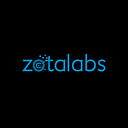Blockchain in Insurance Industry
Blockchain is a revolting technology that has a comprehensive impact on business — in comparison with the transformative effect of the Internet. Surprisingly the vast potential promised by blockchain has prompted a flurry of research activity across different sectors as diverse organizations race to develop applications. Industries such as banking and insurance are adopting blockchain with open arms. The insurance industry especially understands how it must evolve and stay competitive. Blockchain technology can help insurance companies overcome today’s challenges and create transparent operations built on trust and stability. To fully understand the current insurance industry landscape, we will outline some of the challenges organizations face and how blockchain can mitigate these issues below.
Insurance companies face several challenges as it relates to complex compliance issues, limited growth in mature markets, fraudulent claims activity, third party payment transactions, and handling huge amounts of data. Insurers must also evolve from a focus on purely financial-loss compensation to a mode of physical-risk prevention to compete effectively with disruptors in the space. This can only be achieved if they have visibility into their data. Looking at current issues faced by insurance industry blockchain might not be the end-all-be-all to problems faced by While blockchain might not be the end-all-be-all to problems faced by insurers, it does provide foundational technology that promotes trust, transparency, and stability.
Let us have a look at how blockchain helps in the insurance industry:
- Asset tracking and proof of ownership: Insurance companies must first establish ownership of the insured property and also be able to track the transfer of ownership. In this way, insurers can reliably and inexpensively track details and the transaction history of just about any asset of value. These are often digital assets or, using a process called “tokenization,” digital representations of physical things.
- Reinsurance and shared risk: Once physical assets are tracked as digital tokens; insurance companies can pool or distribute the risk much like securities are managed in financial applications. The Blockchain Insurance Industry Initiative (B3i) uses blockchain technology for streamlining reinsurance among participating companies.
- Title insurance: Property ownership records tracked on blockchain ledgers are made trustworthy and virtually tamperproof. That reduces the need to replicate research efforts associated with title insurance and substantially reduces the likelihood of errors or fraud.
- Smart contracts for insurance processing: Self-executing blockchain programs called “smart contracts” are being used for autonomous execution of underwriting, issuance, claims, verification, and settlement processes. Smart contracts have the potential to dramatically increase efficiencies and reduce clerical errors.
- Peer-to-peer insurance: Groups of participants not individually eligible for the suitable insurance coverage might use the decentralized trust and autonomous processing smart contract capability of blockchains to self-insure the group by sharing risk at a reduced cost.
- Microinsurance: Certain low-value or exotic products are often just too expensive for coverage by traditional insurance policy processing. Blockchain automation has emerged as a way to reach untapped markets and insure assets that would otherwise not be worth insuring.
- Internet of things (IoT) self-insurance: Smart devices and property aware of their state can interact with smart contracts to buy their insurance or file claims as established by their sensors. Just like a modern refrigerator informs a homeowner when the water filter needs changing, smart devices and property may also issue alerts when their warranties expire and require renewal, or even renew them automatically.
Overall, blockchain is an inspiring prospect where there is every reason to believe that this technological breakthrough will bring positive effects to individual insurers everywhere. But at the same time, we need to understand the mutual challenges that lie ahead and work together to promote our industry’s development in what promises to be an exciting new era.
